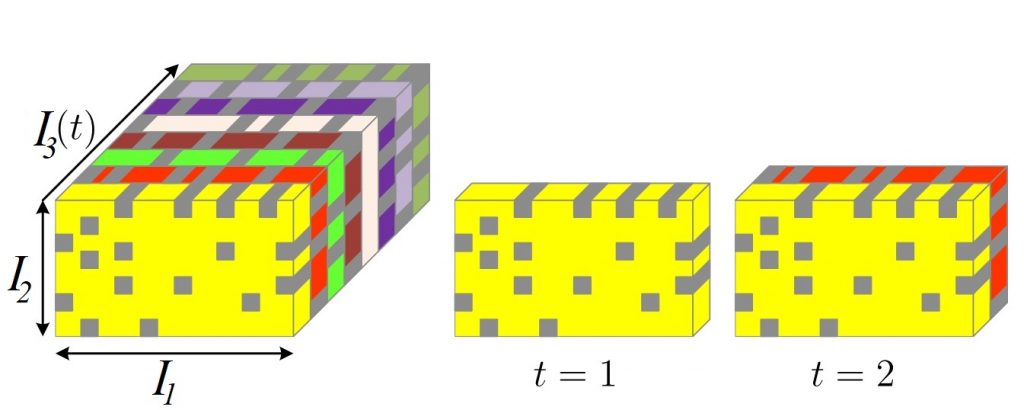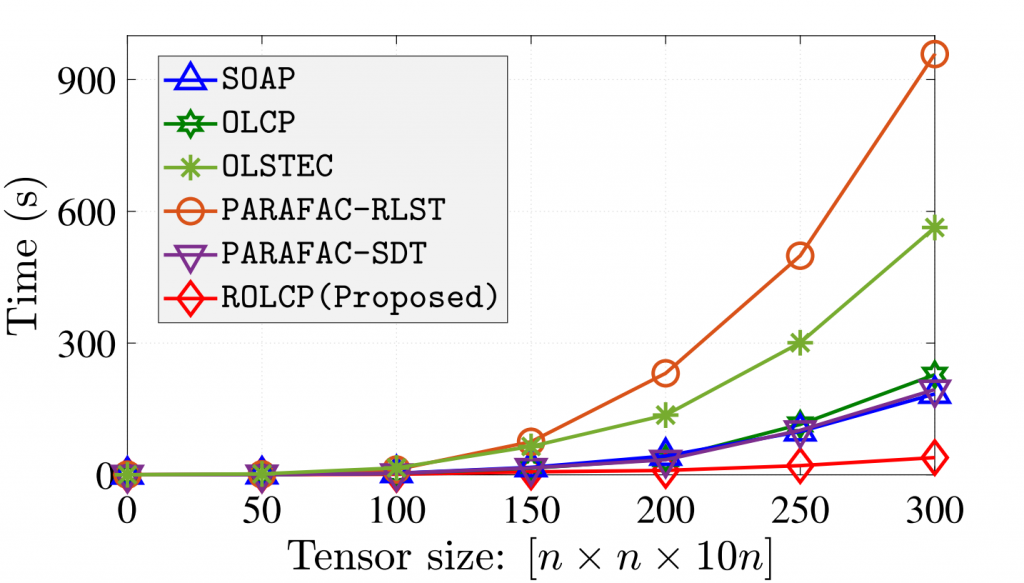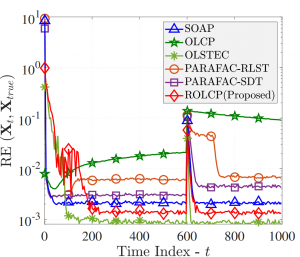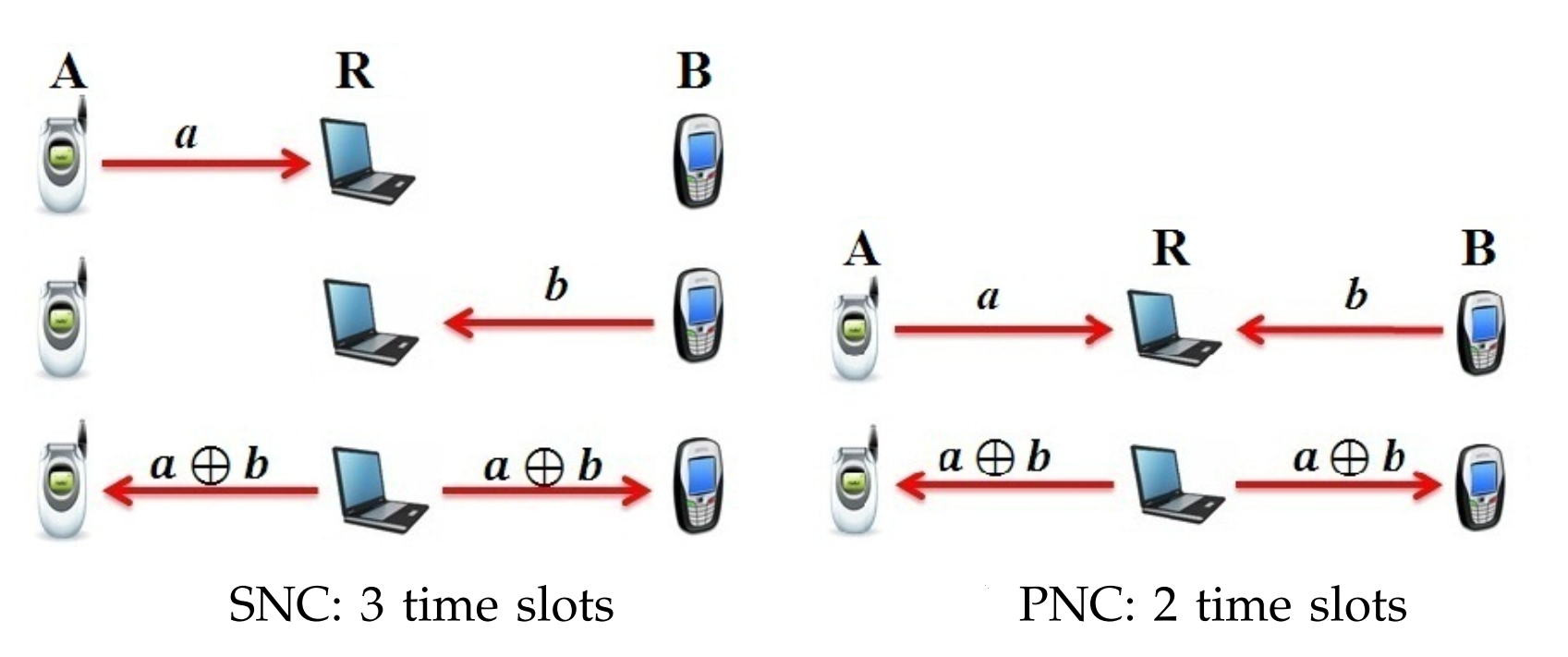
Chương trình mô phỏng
ROLCP: A fast randomized adaptive CP decomposition for streaming tensors
We introduce a fast adaptive algorithm for CANDECOMP/PARAFAC decomposition of streaming three-way tensors using randomized sketching techniques. By leveraging randomized least-squares regression and approximating matrix multiplication, we propose an efficient first-order estimator to minimize an exponentially weighted recursive least-squares cost function. Our algorithm is fast, requiring a low computational complexity and memory storage.
 |
| Fig: Streaming tensors
|
 |
 |
| Fig: Average running time of adaptive algorithms on different synthetic tensors. | Fig: Performance of six adaptive CP algorithms |
Download
MATLAB code can be downloaded here.
Requirement
Our code requires the Tensor Toolbox http://www.tensortoolbox.org/.
Demo
Quick Start: Run the file DEMO.m
State-of-the-art algorithms for comparison
PARAFAC_SDT, PARAFAC_RLST (2009): D. Nion et al. “Adaptive algorithms to track the PARAFAC decomposition of a third-order tensor,” IEEE Trans. Signal Process., 2009.2.
SOAP (2017): N.V. Dung et al. “Second-order optimization-based adaptive PARAFAC decomposition of three-way tensors,” Digit. Signal Process., 2017.
OLCP (2016): S. Zhou et al. “Accelerating online CP decompositions for higher order tensors,” ACM Int. Conf. Knowl. Discover. Data Min., 2016.
OLSTEC (2017): H. Kasai, “Fast online low-rank tensor subspace tracking by CP decomposition using recursive least squares from incomplete observations,” Neurocomput., 2017
Reference
This code is free and open-source for research purposes. If you use this code, please acknowledge the following paper.
[1] L.T. Thanh, K. Abed-Meraim, N.L. Trung, and A. Hafiance. “A fast randomized adaptive CP decomposition for streaming tensors”. IEEE Int. Conf. Acoust. Speech Signal Process. (ICASSP), 2021. [PDF].
Contact
LE Trung Thanh
AVITECH Institute
VNU University of Engineering and Technology, Vietnam
Email: thanhletrung@vnu.edu.vn // letrungthanhtbt@gmail.com



